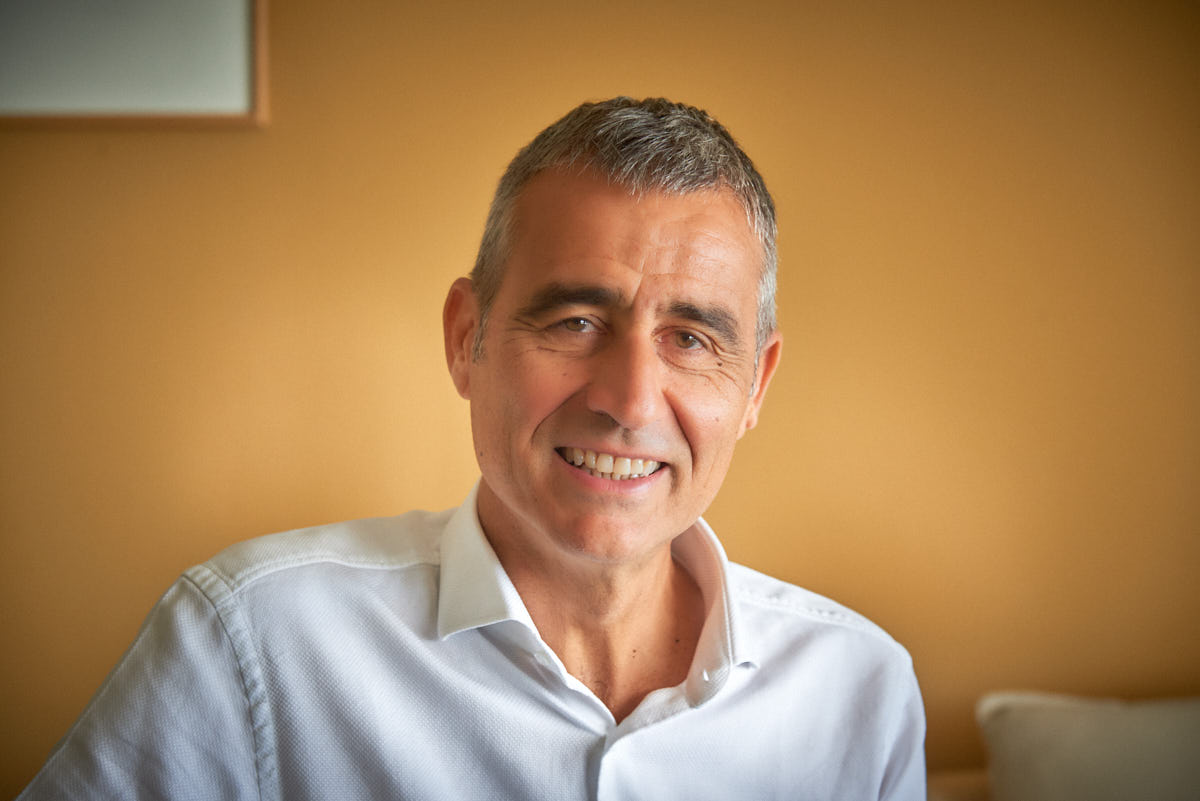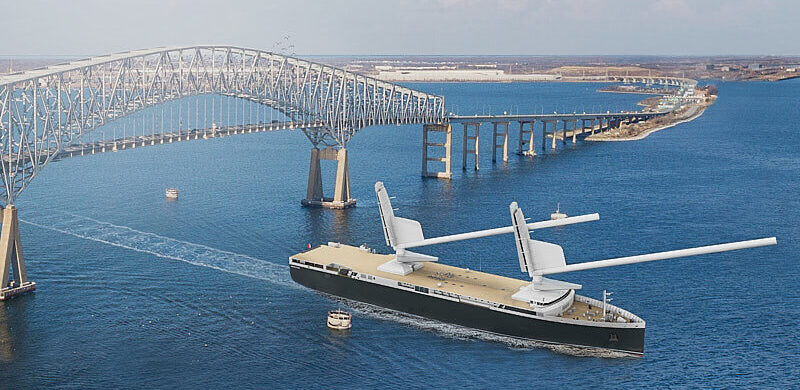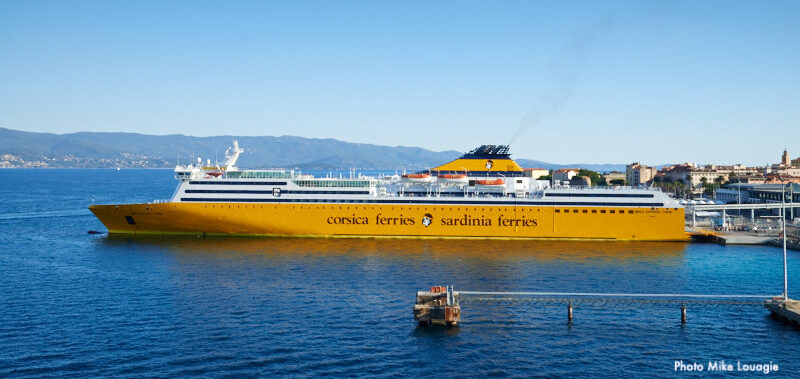Corsica Ferries joined the latest investor round taking a stake in the start-up company Neoline Armateur which will invest in the construction of the first Neoliner, a wind-powered ro-ro ship.
But the ferry company also emerged as the buyer of the modern vessel ROSA DEI VENTI from Giovanni Visentini Trasporti Fluviomarittimi for a price of EUR 25 million and some other investments are expected to take shape in the near future for the retrofit of several ships.
Pierre Mattei, president of Corsica Ferries, in this exclusive interview, gives an overview and some details about the company’s future strategy both on the commercial and on the strategical side.
Let’s start with the last deal close, i.e. the purchase of the ro-ro unit ROSA DEI VENTI: why did you buy this vessel?
“We really liked the ship; it is innovative, modern and inexpensive. We will remain in our waters, and we have an excellent relationship with Grendi group and the Musso family, which is an important and very innovative player in the local market. We really liked the cassette loading system as it optimizes loading and unloading times. Moreover, we want to diversify our business.
We are rather consolidated in our markets: in Corsica, we hold a market share of almost 70% and regarding ferries, our position is rather stable, therefore it was an investment opportunity, a diversification in order to learn from others and enhance our crews’ know-how”.
From your words, it seems that you might be interested in investing directly in the Grendi group in the future. Is that the case?
“We have not talked about it with the Musso family”.
Anyway, is Corsica Ferries interested in getting more involved in sea transport of ro-ro cargoes and in the motorways of the sea?
“Ferries and ro-ro units are very similar. Many ferry companies also own ro-ro vessels, therefore it’s a similar business. I would never think about investing in tankers and multipurpose ships, but ferry and ro-ro lines providing connections with islands are very close. In fact, many companies carry out both activities. The ro-ro niche is very interesting. Since we are not one of the main operators providing connections with Sardinia, we decided to enhance our activities on this island by investing in the ROSA DEI VENTI”.
From a geographical perspective, where do you think Corsica Ferries can find opportunities to grow?
“We developed new car transport activities from Toulon to Maghreb, and we recently transported 500 Tesla units to Spain. As concerns Corsica, we cannot do more than what we are already doing in terms of market share, therefore our development plans focus on new international lines connecting with Sardinia, Balearic Islands and Corsica. We are focusing on transport of similar goods to what we are already doing, i.e. ro-ro cargoes and cars.
We stand out for our flexibility and agility, and we have gained a reputation for our ability to carry out these operations quickly, relying on our specifically trained crews. In our fleet system, ships are not deployed on a single line, but they are used on all our connections”.
Are you planning to carry out retrofit works on your fleet or purchase newbuildings?
“We believe we need to find solutions for our existing ships because at this pace it will take 30 years before the world merchant fleet is renewed completely with new technologies. This is the goal of our investment in the Neoline unit, but in the meantime, we must focus on our existing ships by reducing speed and trips and by carrying out other works. We have already reduced the tons of bunker used without recording turnover losses, and in the meantime, we are looking for alternative fuels and focusing on the transformation of engines on our existing ships.
Obviously, there will be a phasing out of our older ships”.
Which is the fuel of the future on which Corsica Ferries would bet?
“Wind power, especially for cargo ships, while we have not thought about methanol in depth. It has many advantages, especially in the case of investments in the retrofit of existing engines, it will be available at a reliable economic level, it is not polluting, it is easy to transport, and it is not corrosive. For our existing ships and for retrofit activities, we will bet on methanol”.
Is it possible that Corsica Ferries will also order new ferries?
“Anything is possible. We are open to all possibilities, but it must be clear that small players cannot set new standards for the future. We must wait for big shipowners, many of whom are Italian, to choose new propulsion systems and fuels in order to finally boost their use. For a while, we will use different fuels, but in the end, one standard is going to prove more interesting and affordable, and at that point, we must focus on it. In the meantime, we can only wait because it is not up to us to choose the new standard. If we choose the wrong standard, our company would be at risk”.
Following the Italian “fleet renewal” decree, your company received public funds for its MEGA EXPRESS THREE ro-pax. What works are you planning to carry out?
“It will be our first ferry which we are going to equip with all the possible innovations applicable to an existing ship. In our fleet, this is the ship with the highest fuel consumption, therefore we must focus even more on its environmental impact and we will try to equip it with all the necessary systems to improve its impact. This will be our first project for the conversion of existing ships”.
Then you will deal with cold ironing in ports, won’t you?
“In the port of Toulon, our project is at a very advanced stage and works are being defined. Already from next winter, we will have a ship to connect to land-based electricity. In this way, during stops in port, our ferry will no longer produce emissions”.
As concerns ports, besides your Vado Ligure hub, are you planning to serve other ports in Italy, like for instance La Spezia?
“Corsica Ferries’ flexibility principle includes also ports. Savona-Vado is our headquarter and we are happy there, but this will not prevent us from operating lines also from Piombino, Civitavecchia, La Spezia or other ports in France in the future. We recently went to Sète, in Marseille. As we focus on agility, we can be present in any port where the market demands transport of passengers and goods”.
What do you think about the upcoming take-over of 49% of Moby’s shares by MSC?
“We have always been competitors. We do not regard competition as a war because our competitors help us improving, and in turn we help them improving. I believe that nobody is interested in getting a monopoly, therefore competition is very welcome”.




